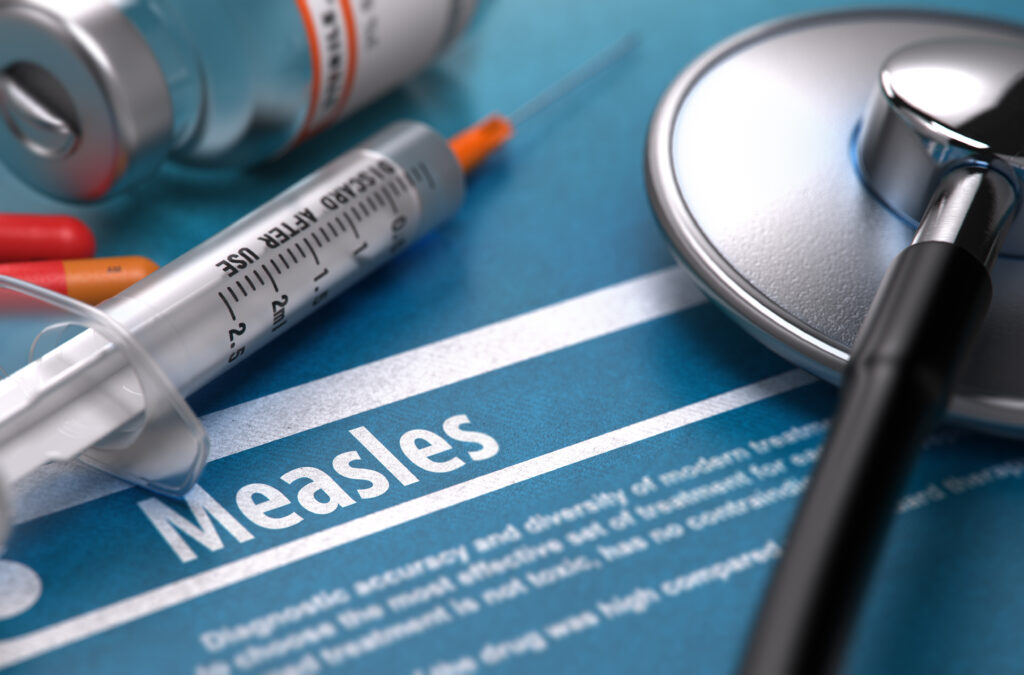West Virginia University Hospitals announced Monday that an adult patient who had been seen at an outpatient clinic last week has tested positive for measles (rubeola).
After receiving confirmation of the positive test, WVU Hospitals notified the Monongalia County Health Department.
According to the Department of Health, the Monongalia County resident was “under-vaccinated” and had recent international travel.
According to the Bureau for Public Health, West Virginia’s most recent case of measles was in 2009.
Measles can be dangerous, especially for babies and young children. Children younger than 5 years of age and adults older than 20 years of age are more likely to suffer from complications.
Measles is a highly contagious respiratory illness that can lead to complications like pneumonia, swelling of the brain and even death.
The virus spreads through the air when an infected person coughs or sneezes. According to the Centers for Disease Control and Prevention (CDC), the virus is so contagious that if one person has it, up to 90 percent of the people in close contact will also become infected if they are not protected through vaccination.
“The measles vaccine is the most effective way to protect yourself and your loved ones from this preventable disease. Those who receive the vaccine are usually considered protected for life,” Secretary of the Department of Health Sherri Young said.
The measles vaccine is typically given in two doses with the first recommended between 12 and 15 months of age. The second dose is recommended between four and six years and, in West Virginia, is required before entering Kindergarten.
“The threat of measles exposure in the United States has been growing over the last decade. We strongly encourage individuals to follow the CDC’s immunization schedule and get their children fully vaccinated as soon as they are able,” said Dr. Matthew Christiansen, state health officer. “A recent measles outbreak in Pennsylvania sickened nine individuals, almost all of whom were unvaccinated.”
Measles symptoms appear seven-to-14 days after contact with the virus and typically include a high fever, cough, runny nose, and red, watery eyes.
Appalachia Health News is a project of West Virginia Public Broadcasting with support from Marshall Health.




















